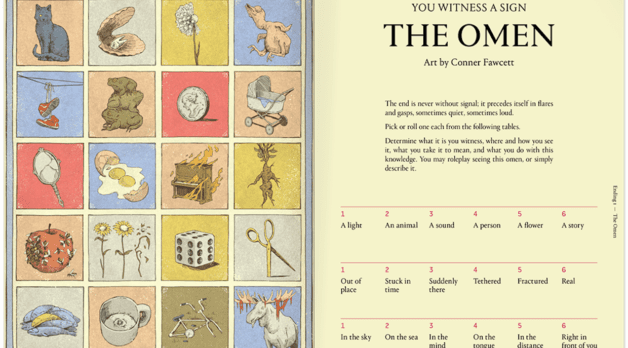Speculations
by Joanne McNeil
-
 Hollywood Underground: Joanne McNeil on EZTV’s Inventive Body of Work
Hollywood Underground: Joanne McNeil on EZTV’s Inventive Body of Work
In 1986, ia Kamandalu showed up at the EZTV space in West Hollywood for a screening of video art by Doris Chase. People recognized her, even though it had been a few years since she was a dancer in music videos like “Super Freak” by Rick James and on variety shows like Don Kirshner’s Rock Concert, performing at the time under the name Kim McKillip. Michael Masucci, an artist and longtime participant in the EZTV community of video-makers, started talking to her. They kept up over the phone and made plans to work together. Kamandalu, who was living Phoenix at… Read more
-
 All Protocols are Not the Same: Joanne McNeil on Bluesky
All Protocols are Not the Same: Joanne McNeil on Bluesky
If you are a filmmaker, journalist, artist or someone else who creates work for an audience, most likely you’ve used social media to share it. Self-promotion is never fun, but it’s felt especially inconsistent (if not totally hopeless) ever since Elon Musk acquired Twitter, renamed it X and began throttling views to posts that include links. A number of users have escaped to new broadcast-based social media services that are “decentralized”—but what that word means depends on who you talk to. There are concrete differences between the AT Protocol, underpinning Bluesky, and ActivityPub, the protocol and standard for Mastodon as… Read more
-
 Mutual Assists: Joanne McNeil on How a Massachusetts Video Store is Aiding Local Journalism
Mutual Assists: Joanne McNeil on How a Massachusetts Video Store is Aiding Local Journalism
Imagine you are in the basement of a home somewhere in the suburbs amid towers of cardboard boxes and items bought in bulk. There are bikes with training wheels and cobwebs between the spokes. Behind a broken recliner is a fake Christmas tree with garland and fairy lights still on it. On wire shelving racks are boxes filled with VHS tapes and DVDs. You see Sky Captain and the World of Tomorrow, Meet the Fockers, Waiting to Exhale, The Godfather trilogy box set and the 25-disc edition of Six Feet Under. A few of the videos are still wrapped in… Read more
-
 Notes from Inside the Ecosystem: Joanne McNeil on Apple Vision Pro
Notes from Inside the Ecosystem: Joanne McNeil on Apple Vision Pro
From the late aughts until pre-pandemic times, Apple’s presence in my life seemed concise and easy to recognize. It manufactured the phone in my pocket and the laptop I worked on. I picked an iPhone and a MacBook over the alternatives for the usual reasons: because Apple products were reliable and well-designed with intuitive user interfaces. The company, as a product manufacturer, appeared to have a vastly different purpose than the neighboring Silicon Valley empires extracting and monetizing data like Google and Facebook. Something changed in recent years. Now, when I think of Apple, I think of the AirTags I… Read more
-
 Authoring Your Life Story: Joanne McNeil on Self-Archiving and George Westren
Authoring Your Life Story: Joanne McNeil on Self-Archiving and George Westren
For any artist who works with digital files in the twenty-first century (that’s most of us), the work—in addition to making the art—is making sure it sticks around. To both archive and maintain your own work is a reminder of the gap between current practice and public markers of success. It can feel like an exercise in futility: If this work was really worth it—if someone other than you believed in its value—wouldn’t you have the time and money and institutional support to do it right? A library would offer to acquire your letters, no? Or, perhaps, with awards, grant… Read more
-
 Invisible on the Interstate: Joanne McNeil on Amy Reid’s Long Haulers
Invisible on the Interstate: Joanne McNeil on Amy Reid’s Long Haulers
“Everything in your house has, at one time, been moved on a truck,” says one of the truckers featured in Long Haulers. Amy Reid’s film subtly demystifies what can be a uniquely alienating form of labor, and the film itself has recently emerged from relative invisibility. The titular vehicles are typically driven by men. Reid’s debut documentary follows the lives of three women who are among the nearly seven percent of long haul truckers working in the United States. Completed in 2020, Long Haulers might have then seemed incredibly timely given the global supply chain crisis, which was among the… Read more
-
 Turning Poetry into Art: Joanne McNeil on Large Language Models and the Poetry of Allison Parrish
Turning Poetry into Art: Joanne McNeil on Large Language Models and the Poetry of Allison Parrish
An application like ChatGPT is “taking the last 20 years of the internet and chewing it up, then producing a system that draws from that,” Allison Parrish explained when we spoke over Zoom last month. To the poet and programmer, generating content with large language model (LLM) neural nets is like “powering an engine with the methane that comes from decomposing corpses in a graveyard.” Few artists working today have Parrish’s depth of experience with generative text. You have likely encountered her work online, especially if you were active on Twitter in the “Horse_ebooks” era. Early on in her career,… Read more
-
 Binge Watch: How Silicon Valley Lifestyles Are Being Portrayed on Screens Large and Small
Binge Watch: How Silicon Valley Lifestyles Are Being Portrayed on Screens Large and Small
A number of recent films and television shows have been set in the tech industry. And regularly, I notice these projects can’t seem to decide: What’s the problem with Silicon Valley, anyway? One might draw a straight line from a character like Wall Street’s Gordon Gekko to jobs lost and houses foreclosed upon, but the consequences of “disruption” can be trickier to distill into lines as visceral and powerful as “greed is good.” I was thinking about this when I watched part of Super Pumped on a plane earlier this year. As it happens, American Airlines is one of the… Read more
-
 Beyond the Third Act: Everest Pipkin’s Cinema-Inspired Tabletop RPG World Ending Game
Beyond the Third Act: Everest Pipkin’s Cinema-Inspired Tabletop RPG World Ending Game
“Endings are very hard,” said Everest Pipkin. “It’s one of the most difficult things about making anything, and only gets harder when you are collaboratively telling a story with lots of people.” Speaking via video chat from their home in southern New Mexico, Pipkin, an artist and game designer, recently released World Ending Game, a tabletop “falling-action game” designed for players to bring existing campaigns to a close. Say you’re part of a weekly group playing Dungeons & Dragons and everyone is ready to move on. Your party can wrap things up and bring your existing characters — the druid,… Read more
-
 Engineers, Artists, Both? Joanne McNeil on Bell Lab’s Pioneering Ken Knowlton
Engineers, Artists, Both? Joanne McNeil on Bell Lab’s Pioneering Ken Knowlton
“Animated movies are usually made by a slow and complex process involving the coordinated efforts of many artists, draftsmen, photographers and other specialists,” begins a curious instructional film Bell Telephone Laboratories Inc. released in 1964. After asserting that with an “electronic computer,” an animator could bypass “tedious” labor, the opening scroll concludes, “this very film was produced entirely by the process which is about to be described.” What follows is a concise and visually fascinating demonstration of BEFLIX (“Bell Flix”), one of the earliest computer animation techniques. Images in the demo—created with a “mosaic” grid of squares, each programmed to… Read more
